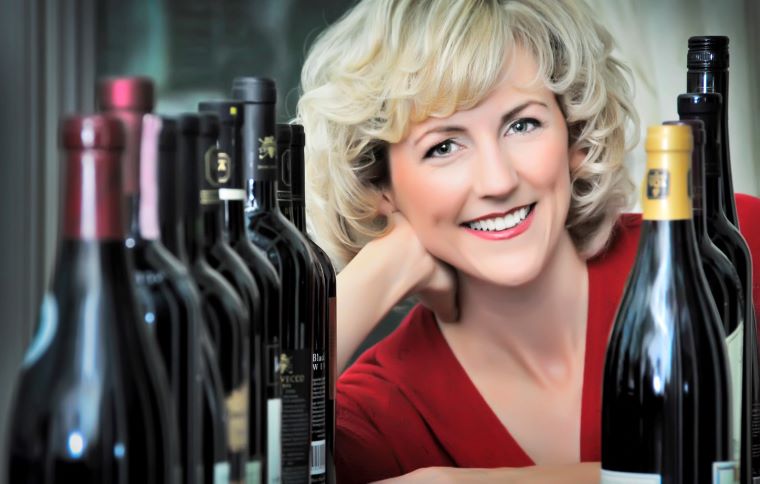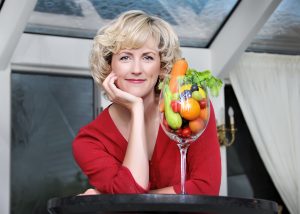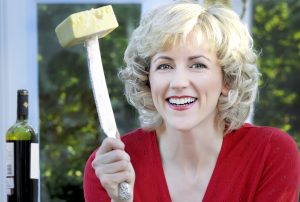
It has been a while since we spoke with wine connoisseur and writer Natalie MacLean. Recently, we caught up with the renowned sommelier to discuss her upcoming third book, the world of Celtic spirits, and connecting with your Clan.
Tell us a little bit about your roots.
My Celtic heritage goes back on all sides. Both sides of my family started in Scotland and emigrated to Cape Breton. My parents’ families then relocated to Toronto, where my mom and dad met at a “Down East” dance. They returned to Nova Scotia and had a family. Although I was born in a suburb of Toronto, we moved back to Cape Breton when I was just 11 years old. I grew up in Nova Scotia for the most part, studying at Mount St. Vincent University, until I went away to the University of Western Ontario for the MBA program.
You are a sommelier. How did you get into that?
I always say that I come from a long line of hard drinkers, so I have a Teflon liver! That would be my Scottish genes. But actually, I really didn’t get into wine as a youngster, as my relatives in Nova Scotia were mostly beer and whiskey drinkers. I didn’t like the taste of beer or spirits – whiskey – because I found them too bitter. Later in life, I discovered that I am what is called a “super taster.” I have, on average, more taste buds and more sensitivity to taste than the average taster. I didn’t get into wine until I had finished graduate school and finally had the funds to get fancy and move to Toronto. My then-husband and I used to go for dinner a lot, and so we started ordering wine to acoompany our meals. I remember my first taste of wine – it was really good wine – not the Baby Duck, behind-the-high-school variety. A Brunello; an Italian, robust red. And I thought, ‘wow, what is this?’ And it didn’t taste bitter; it tasted good to me. And I wanted to find out more. That sent me on a quest to learn more about wine, and then putting those thoughts and feelings I had about wine into words.
 Right, because you are a writer as well.
Right, because you are a writer as well.
Yes. That is mostly what I do. I am not a ‘working’ sommelier, shall we say? I don’t work in a restaurant as a sommelier, and I never have, except when I was writing my second book with Random House, and I did a “Day in a Life” approach for everything in the wine industry – though I have a sommelier diploma. But my focus is now on writing, and I am currently working on my third book. My passion, too, is teaching wine and food pairing through online courses. I just absolutely love that. My mother and my grandmother are both schoolteachers in Nova Scotia., and I taught highland dancing for fifteen years, so now I think that I am returning to my teaching roots with this.
Do you have any tips that you can share about what people need to do to approach wine the right way?
Well, first, they need to read both of my books and take my online course! It’s easy! It’s really easy! Actually, learning about wine is fun. People can do that through a structured course like the one I offer. Or, you can just start paying attention to the wines you are drinking. Think about it like the way you go to a movie. You go to a movie to relax and watch a movie. But a movie critic is paying attention to the characters and the plot and the special effects and so on. So, the difference between wine tasting and wine drinking is paying attention to your wine. What do I see in my glass? What am I smelling? What flavors am I getting? What do they remind me of? What have I tasted in the past that tastes like this wine? It is a matter of developing a flavor and aroma vocabulary. We live in such a visual culture, so we really don’t depend on our sense of smell as much. But when it comes to wine, scent is everything. We can detect millions of different aromas, but we just have five tastes on our tongue. So, the whole thing about wine is in the nose. If you practice smelling things, like when you cut open fruit or vegetables, that is when they are freshest, when they are most pungent; smell them and then see if you get anything like that in your wine. Smell the cinnamon on your toast. Smell the leather chairs in your den (just don’t let anyone see you doing it). I also really encourage two-fisted drinking. Not just because I am from Nova Scotia, or that I am Scottish, but because that is the way you will learn most about wine. Instead of just having one glass at a time, maybe have half a glass of two different wines and compare them. Go back and forth, and the differences will jump out at you, how wine differs from glass to glass.
There are many different Scottish and Irish whiskeys. Is there an equivalent for people who want to enjoy wine, and also get in touch with the Celtic culture? Is there a wine for them?
There are two parts to this answer. First, climate change is having an impact on how far north vines for making wine can grow. Traditionally, of course, the northern countries – including Scotland, Ireland, and Canada to a certain extent – couldn’t grow vines to make good wines as it is simply just too cold. So, they became specialists at making whiskey and beer. However, now I am reading about vineyards that are starting to become successful in Scotland. I haven’t seen any of those wines here yet, but certainly England has great, well-known wines – especially sparkling wines and Champagnes. I think we will see wine from Scotland in the future, it’s just not here yet. The second answer is that if you are looking for wines with a Scottish tie-in, Bordeaux (France) is actually a good region to explore. During the Highland clearances, and through Scottish history, it wasn’t just poor folk like my family who had to leave their land. Many of the wealthy Scots went to Bordeaux, including a number of Lords. You will find that there are a number of wineries in Bordeaux that have Scottish roots – that were started by the Scots. And around the world, there are lots of wineries with Scottish founders, or wine makers, or labels.
There’s definitely some Celtic culture down the vine, if you will.
Yes, exactly.
 You mentioned a third book you’re working on. What’s it about?
You mentioned a third book you’re working on. What’s it about?
Well, the first one is Red, White and Drunk All Over: A Wine-Soaked Journey from Grapes to Glass. The second one is Unquenchable: A Tipsy Search for the World’s Best Bargain Wine. The third one is going to be more of a memoir, and I am in the middle of writing it now. I don’t have full details yet, but it is about what it is like to work in the wine world, especially as a woman – I don’t think a lot of people realize what goes on there. This will be an insider’s look of what it is like to be a woman in an industry that is still largely male-driven. I expect the book to be done by the end of this year.
From your perspective, is enough being done to preserve Celtic culture?
My mom is currently working on a family tree project. And, I have a wine newsletter that goes to 270,000 people, and I have been connecting with more and more people who say, ‘hey, I’m a MacLean. Are you by any chance related to…?’ Also, combining an ancestry-type project with something like a DNA analysis will reveal some powerful connections, bringing the past to life – especially when you can connect that history to people that you meet and interact with today. And then the final piece of it, for us anyway, is having family reunions. We had one last year, and we are having another one this summer in Cape Breton. When you ask, ‘is Scottish culture being preserved,’ I don’t know on a global scale, but I know on a family scale, there have never been more resources available to bring one’s Scottish history, family, or culture alive and together with all of those tools.
And family reunions are a great opportunity to have some wine.
Oh, exactly! That’s what it’s all about.




















Leave a Comment